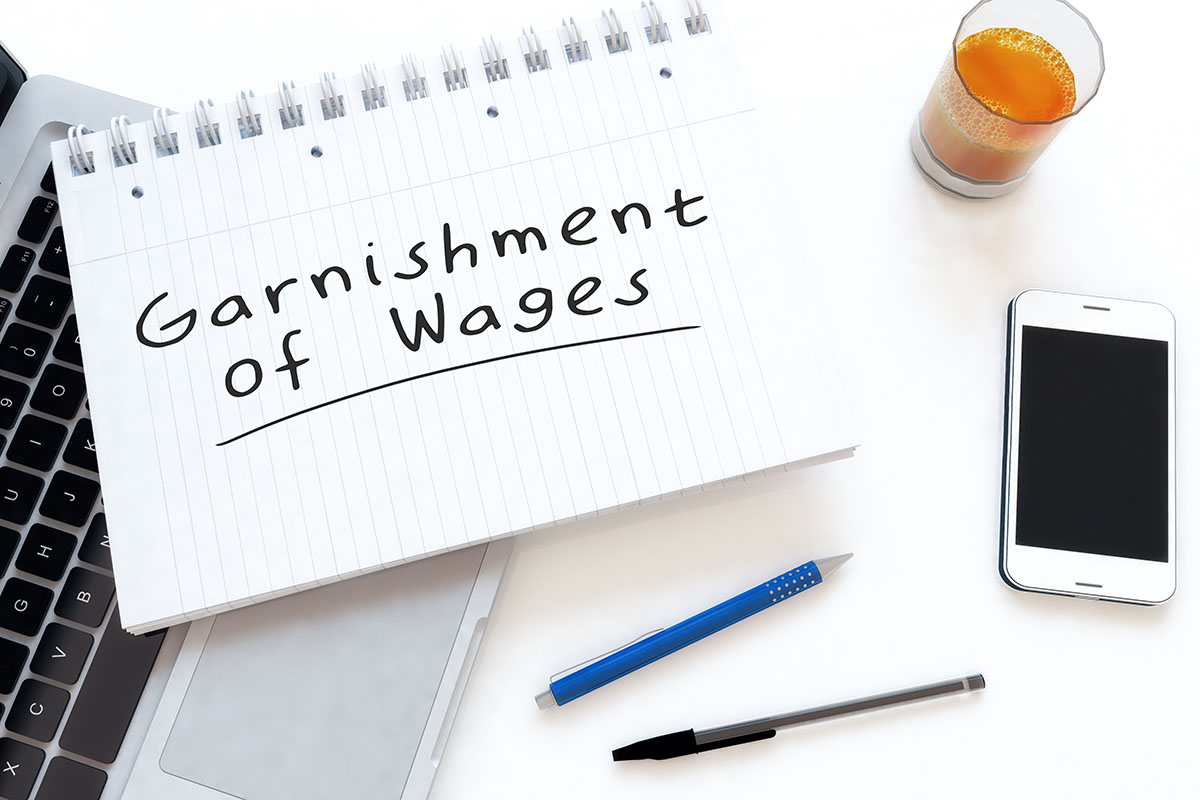How Does Wage Garnishment Work for Medical Bills in Arizona?
 One of the most disheartening things anyone can experience is a notification that their wages are being garnished. There are many reasons that a person’s wages could be garnished, and we have to take them seriously. Wage garnishments can severely impact our ability to care for ourselves and our families.
One of the most disheartening things anyone can experience is a notification that their wages are being garnished. There are many reasons that a person’s wages could be garnished, and we have to take them seriously. Wage garnishments can severely impact our ability to care for ourselves and our families.
Did you know that your wages can be garnished due to medical debt?
Today, we want to talk about how a medical debt can cause a garnishment and what you can do about it. We also want to discuss bankruptcy and the possibility of using that process to get back onto firm financial footing. Please speak to a knowledgeable and experienced Arizona bankruptcy attorney about your particular case.
How can there be wage garnishments for medical bills?
Wage garnishments can occur when a creditor goes through the process of petitioning the court to take payments directly from your paycheck. We know that it seems counterintuitive for a debt collection to become a wage garnishment. After all, if you are already struggling, will this not make the problem worse?
The good news is that a creditor cannot simply decide they want to garnish your wages. They have to file a lawsuit against you, win the case, and get a judgement. There are some exceptions to that in Arizona. The following can be garnished from your wages without a court judgement:
- Court-ordered child support payments
- Court-ordered spousal maintenance payments
- Back taxes owed to the federal, state, and local governments
- Student loan debt (limited to 15% of disposable income)
Your medical bills cannot be garnished from your wages unless the person holding the debt files a lawsuit and gets a court judgement.
Even if a garnishment is ordered, there are limits. Your creditors cannot garnish more than:
- 25% of your disposable income or
- The amount by which your weekly disposable income exceeds 30 times the federal minimum wage ($7.25 per hour)
We are living in a time when an overwhelming number of Americans have medical debt. This happens regardless of whether or not a person has insurance. Those with insurance often find that the procedures they need, including emergency ones, are not covered by their insurance provider.
- More than $3.3 trillion was spent on healthcare in the US during the latest reporting year.
- More than 26% of Americans between the ages of 18 and 64 struggle to pay their medical bills.
Click here for information on how bankruptcy can stop wage garnishment.
How can you stop wage garnishments?
Whether your wage garnishments are from medical debt or another debt you have, there are ways to stop them.
- Both Chapter 7 and Chapter 13 bankruptcy can help with your debts and stop wage garnishments.
First, please understand that child support payments and alimony are not going to be discharged. That is okay because bankruptcy can help get your debt under control and make all other debts manageable.
- Credit cards, medical debts, and personal loan debts are all usually going to be discharged or restructured as part of the bankruptcy proceeding.
It is time to take control of the situation
You should not have to worry about your wages being garnished because of medical bills. The healthcare system in the US has major problems. Families should not have to worry about medical debt haunting them and preventing them from putting food on the table.
Please speak to an Arizona bankruptcy attorney to learn about all of your options. You and your attorney can figure out exactly what needs to happen to get your financial situation to a stable place so you can stop worrying about tomorrow. Chapter 7 and Chapter 13 need to be examined so you can start moving forward.
Find out about changing jobs during and after filing bankruptcy in Arizona.


